
Buka: The Gateway to Bougainville's Hidden Treasures
Buka, the charming capital of the Autonomous Region of Bougainville in Papua New Guinea, is a city that offers an authentic and unspoiled experience for travelers. Known for its stunning natural beauty, Buka is surrounded by crystal-clear waters, lush green landscapes, and a rich cultural heritage that is sure to captivate any visitor. The city itself is a haven for those looking to explore the traditional way of life of the Bougainvillean people. As you wander through Buka, you'll encounter friendly locals, vibrant markets, and traditional wooden houses. The Buka Passage, a narrow strait separating Buka Island from the main island of Bougainville, is a breathtaking sight, especially during sunrise and sunset. For adventure seekers, Buka offers numerous activities such as snorkeling, diving, and trekking. The surrounding waters are teeming with marine life, making it a paradise for underwater enthusiasts. On land, the dense forests and rugged terrain provide excellent opportunities for hiking and wildlife spotting. Make sure to visit the WWII relics scattered around the island, as they offer a poignant reminder of the region's historical significance. Cultural enthusiasts will appreciate the traditional dances, music, and crafts that are integral to Bougainvillean life. Participating in local festivals and ceremonies can give you a deeper understanding of the customs and traditions that have been preserved for generations. Buka is not just a destination; it is an experience that offers a unique blend of natural beauty, adventure, and cultural immersion.
Local tips in Buka
- Carry cash, as ATMs and card payment facilities can be scarce.
- Respect local customs and ask for permission before taking photographs of people.
- Hire a local guide for trekking and exploring the more remote areas.
- Visit local markets early in the morning for the freshest produce and unique handicrafts.
- Be prepared for limited internet connectivity and embrace the digital detox.
Buka: The Gateway to Bougainville's Hidden Treasures
Buka, the charming capital of the Autonomous Region of Bougainville in Papua New Guinea, is a city that offers an authentic and unspoiled experience for travelers. Known for its stunning natural beauty, Buka is surrounded by crystal-clear waters, lush green landscapes, and a rich cultural heritage that is sure to captivate any visitor. The city itself is a haven for those looking to explore the traditional way of life of the Bougainvillean people. As you wander through Buka, you'll encounter friendly locals, vibrant markets, and traditional wooden houses. The Buka Passage, a narrow strait separating Buka Island from the main island of Bougainville, is a breathtaking sight, especially during sunrise and sunset. For adventure seekers, Buka offers numerous activities such as snorkeling, diving, and trekking. The surrounding waters are teeming with marine life, making it a paradise for underwater enthusiasts. On land, the dense forests and rugged terrain provide excellent opportunities for hiking and wildlife spotting. Make sure to visit the WWII relics scattered around the island, as they offer a poignant reminder of the region's historical significance. Cultural enthusiasts will appreciate the traditional dances, music, and crafts that are integral to Bougainvillean life. Participating in local festivals and ceremonies can give you a deeper understanding of the customs and traditions that have been preserved for generations. Buka is not just a destination; it is an experience that offers a unique blend of natural beauty, adventure, and cultural immersion.
When is the best time to go to Buka?
Iconic landmarks you can’t miss
The Stanley Hotel & Suites
Experience luxury and comfort at The Stanley Hotel & Suites in Port Moresby, a perfect base for exploring Papua New Guinea's vibrant capital.

New Guinea
Explore the enchanting landscapes, rich cultures, and vibrant ecosystems of New Guinea, an island paradise in the southwestern Pacific Ocean.
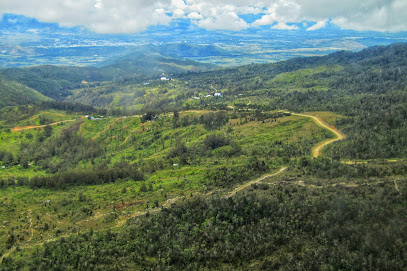
Lamana Hotel (Port Moresby)
Discover the vibrant culture and hospitality of Papua New Guinea while enjoying a comfortable stay at Lamana Hotel in Port Moresby.
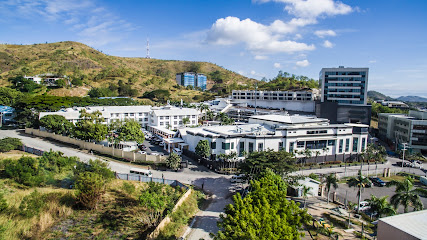
Port Moresby Nature Park
Explore the lush landscapes, diverse wildlife, and serene beauty of Port Moresby Nature Park, a premier destination in Papua New Guinea.
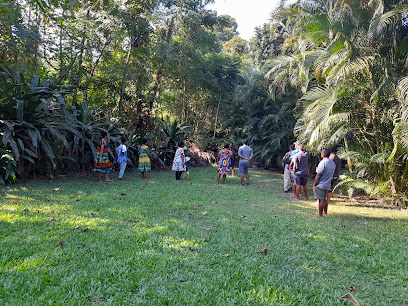
Jacksons International Airport
Discover the gateway to Papua New Guinea at Jacksons International Airport, where adventure begins and cultural experiences await.
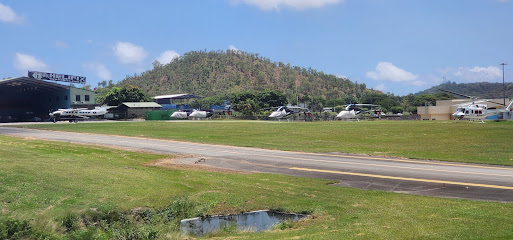
Puncak Jaya
Discover the breathtaking heights of Puncak Jaya, Indonesia's tallest peak, where adventure meets stunning natural beauty in Papua.
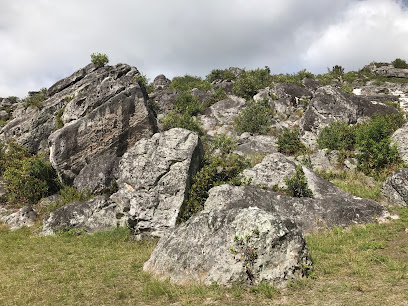
West Papua
Explore the stunning beauty and vibrant culture of West Papua, Indonesia's hidden paradise for adventurers and nature enthusiasts.
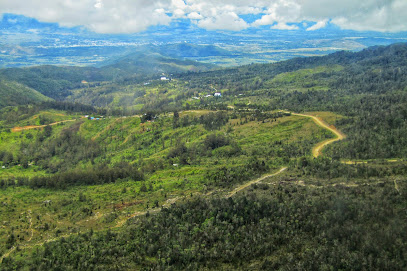
Royal Papua Yacht Club
Explore the Royal Papua Yacht Club in Port Moresby for a blend of adventure, relaxation, and stunning harbor views in Papua New Guinea's vibrant capital.
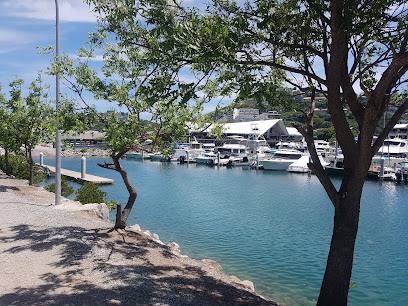
Kokopo Beach Bungalow Resort
Discover the serene beauty and vibrant culture of Kokopo Beach Bungalow Resort, your gateway to adventure in Papua New Guinea.

Bougainville Island
Unveil the natural wonders and rich culture of Bougainville Island, a hidden paradise in Papua New Guinea where adventure and tranquility meet.
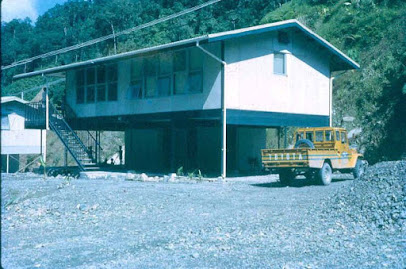
DHL Express Service Point
Experience seamless shipping solutions at DHL Express Service Point in Port Moresby, your trusted partner for logistics and courier services during your travels.
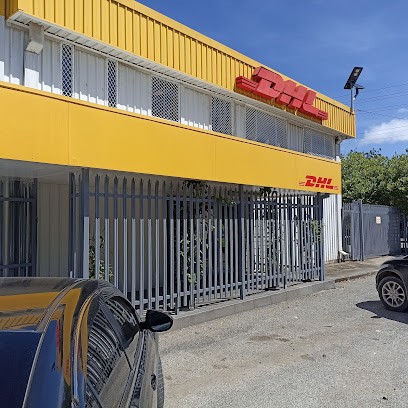
Papua New Guinea National Museum and Art Gallery
Discover the rich cultural heritage of Papua New Guinea at the National Museum and Art Gallery in Port Moresby, a must-visit for all tourists.
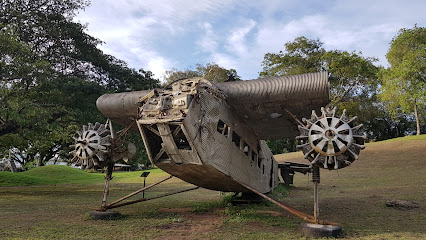
Adventure Park PNG
Experience the thrill of Adventure Park PNG, a family-friendly theme park in Central Province with exciting rides and attractions for everyone.
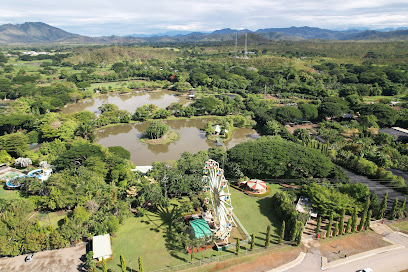
Manus Island
Experience the enchanting landscapes and rich culture of Manus Island, a hidden gem in Papua New Guinea perfect for adventure and relaxation.
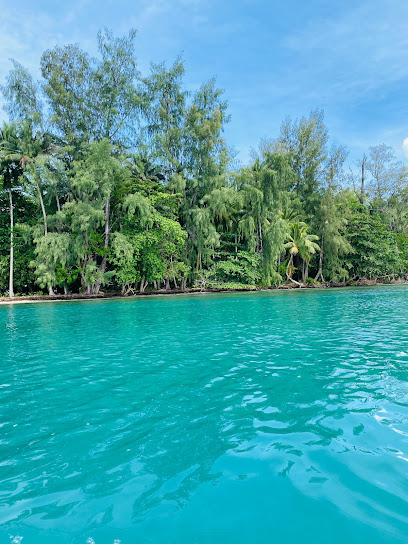
Lihir Island
Discover Lihir Island: A Tropical Paradise in Papua New Guinea with Stunning Landscapes, Rich Culture, and Vibrant Marine Life.
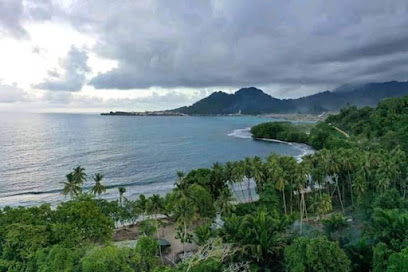
Unmissable attractions to see
Buka Island
Explore the untouched paradise of Buka Island in Bougainville, where stunning beaches meet vibrant culture and endless adventure awaits.
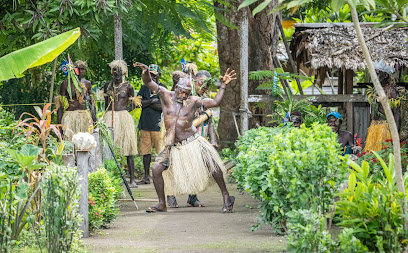
JK McCarthy Museum
Explore the cultural treasures of Papua New Guinea at the JK McCarthy Museum in Goroka, where history comes alive through fascinating exhibits.
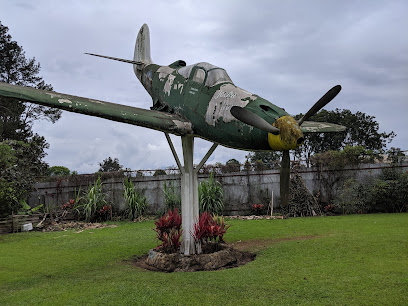
White Island
Explore White Island: A serene paradise in the Solomon Sea, where pristine beaches and vibrant marine life await your discovery.
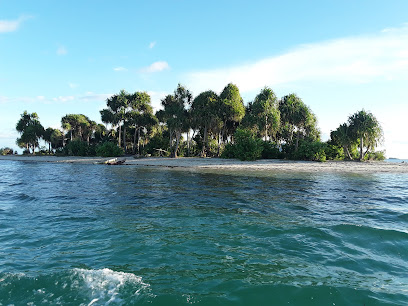
Bel Isi Park
Experience the tranquility and natural beauty of Bel Isi Park in Buka, Bougainville - a perfect retreat for nature lovers and peace seekers.
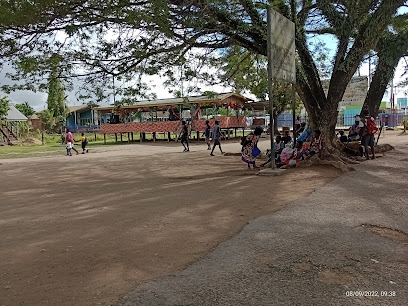
Vunela Martyrs Historical Site & WWII Japanese Tunnels
Discover the haunting history of Rabaul at the Vunela Martyrs Historical Site & WWII Japanese Tunnels, a tribute to bravery and resilience.
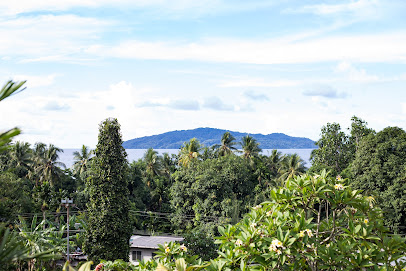
The Bannoni Experience
Explore the natural beauty and rich culture at The Bannoni Experience in Buka, Papua New Guinea, an enchanting destination for every traveler.

Pasinau Viewpoint
Experience the stunning beauty of Pasinau Viewpoint, a serene escape showcasing breathtaking landscapes in the Autonomous Region of Bougainville.

Essential places to dine
Daikoku Japanese Steak House
Savor authentic Japanese flavors at Daikoku Japanese Steak House in Port Moresby - where culinary artistry meets vibrant dining.
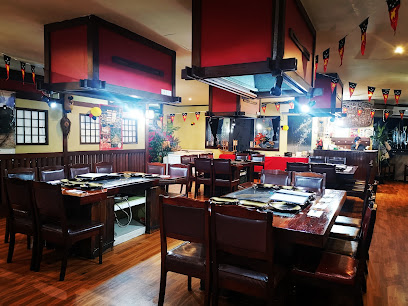
Fu Gui
Experience authentic Chinese cuisine at Fu Gui in Port Moresby—where tradition meets taste in every dish.
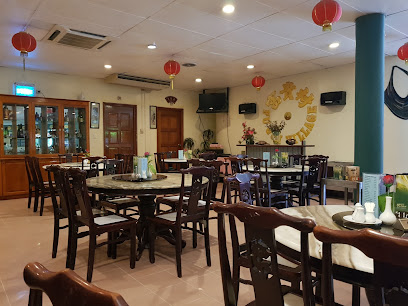
Edge Cafe Port Moresby
Experience the vibrant brunch culture at Edge Cafe Port Moresby, where delicious meals meet friendly service in an inviting atmosphere.
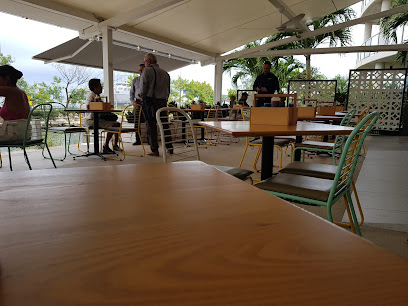
Alibi Bar & Grill
Experience the vibrant flavors of Papua New Guinea at Alibi Bar & Grill in Port Moresby – where local ingredients meet international cuisine.
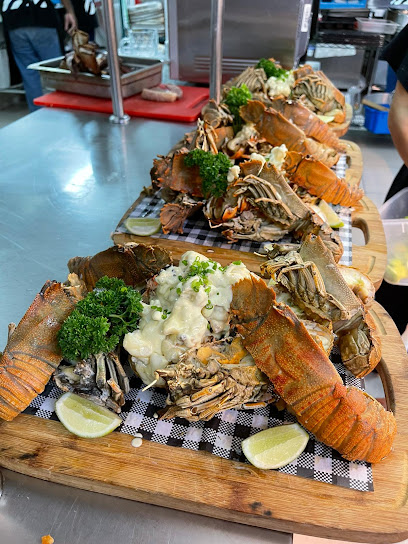
Savannah Bistro
Experience the vibrant flavors of Papua New Guinea at Savannah Bistro - where culinary excellence meets warm hospitality.
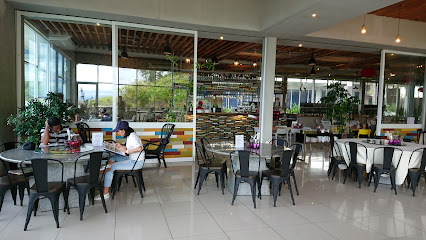
Asia Aromas Harbour Side West PNG
Discover authentic Chinese flavors at Asia Aromas Harbour Side West PNG - where culinary tradition meets stunning harbor views.
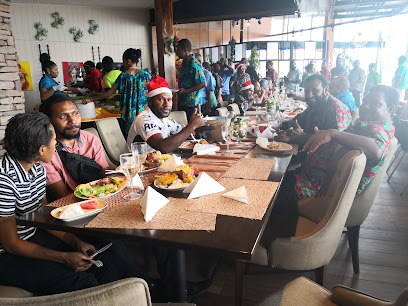
Ang's Restaurant
Discover authentic Chinese flavors at Ang's Restaurant in Port Moresby - where every dish tells a story.
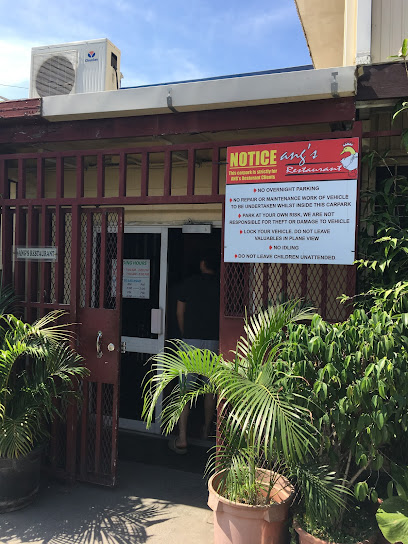
Fusion Bistro
Experience the vibrant fusion of local flavors at Fusion Bistro in Port Moresby - where culinary artistry meets cultural heritage.
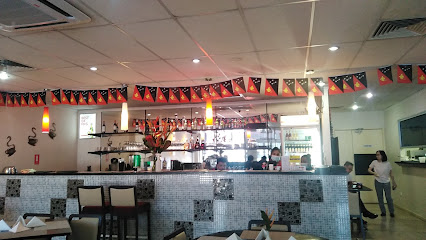
Tandoor on the Harbour
Discover authentic Indian flavors at Tandoor on the Harbour in Port Moresby - where culinary excellence meets stunning waterfront views.
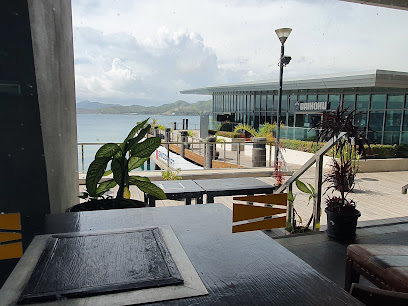
Golden Bowl Restaurant
Discover the rich flavors of authentic Chinese cuisine at Golden Bowl Restaurant in Port Moresby - a must-visit culinary gem.
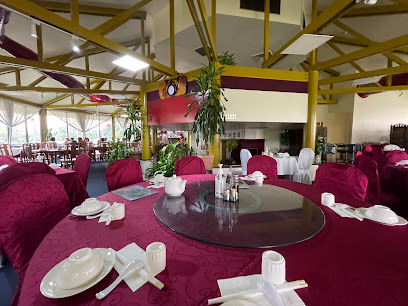
Luluai
Experience the vibrant flavors of Papua New Guinea at Luluai in Port Moresby—where tradition meets taste.
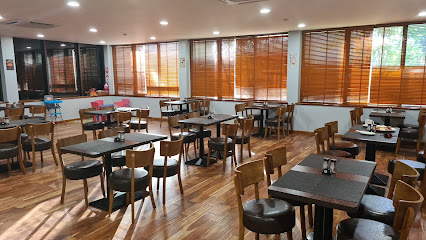
Port Terrace Restaurant & Bar
Experience exquisite dining at Port Terrace Restaurant & Bar in Port Moresby - where local flavors meet global cuisine.
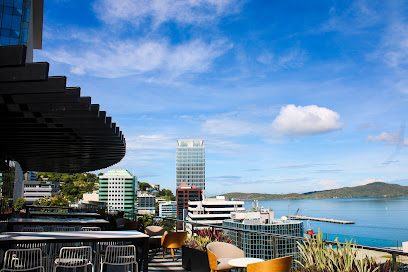
Seoul House Restaurant
Experience authentic Korean cuisine at Seoul House Restaurant in Port Moresby - A must-visit destination for food lovers!
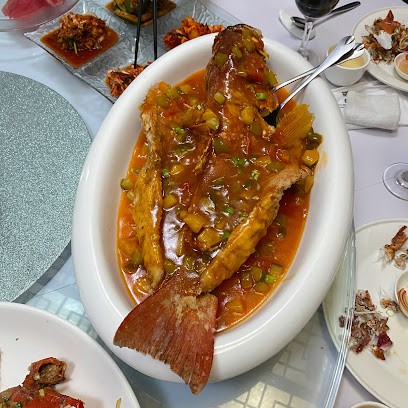
Mumu Restaurant
Experience authentic Papua New Guinean cuisine at Mumu Restaurant in Port Moresby, where tradition meets flavor.
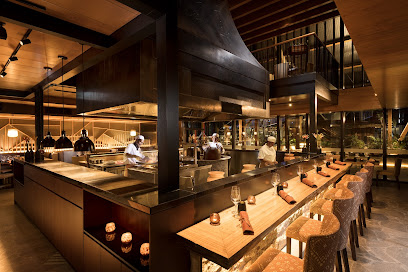
Tasty Bite Indian Restaurant
Discover the rich flavors of India at Tasty Bite Indian Restaurant in Port Moresby – where every dish tells a story.
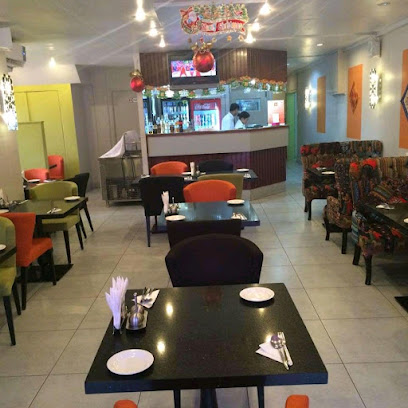
Markets, malls and hidden boutiques
Vision City Mega Mall
Experience shopping, dining, and entertainment at Vision City Mega Mall, the largest mall in Papua New Guinea, offering a taste of local culture and modern amenities.
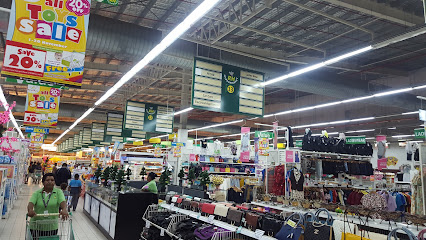
Stop and Shop Waigani Central
Explore Waigani Central in Port Moresby for a diverse selection of local and international groceries, fresh produce, and a vibrant shopping experience.
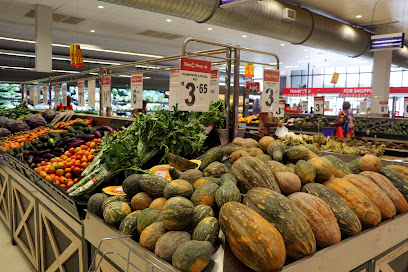
Stop N Shop
Discover the vibrant shopping experience at Stop N Shop in Port Moresby, where local culture and convenience meet.
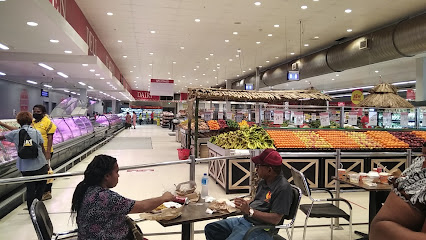
Jack's of PNG
Explore the vibrant world of Pacific fashion at Jack's of PNG, where tradition meets contemporary style in Port Moresby.
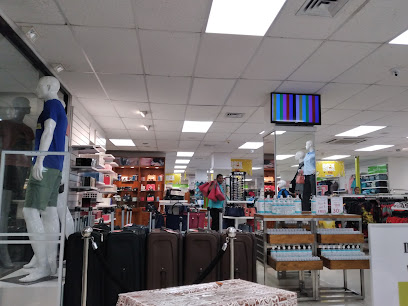
Mosin Plaza
Explore Mosin Plaza in Port Moresby for a delightful shopping experience filled with local products and vibrant culture.
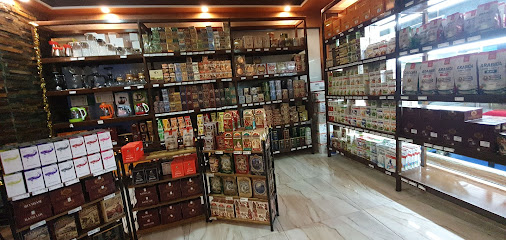
Tango Department Store Boroko
Explore unique home goods and local products at Tango Department Store Boroko in Port Moresby for an authentic shopping experience.
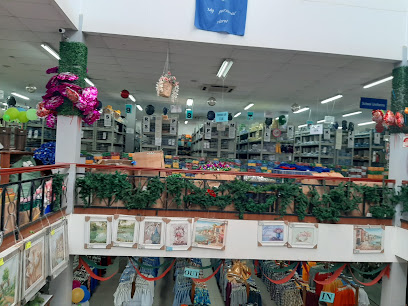
Unity Mall & Supermarket
Explore Unity Mall & Supermarket in Port Moresby for local crafts, unique PNG fashion, and a vibrant shopping atmosphere that captures island culture.
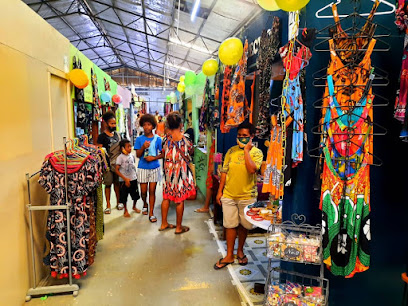
Jomik Trading
Explore the best of Buka's local offerings at Jomik Trading, your one-stop supermarket for fresh produce and regional delicacies.
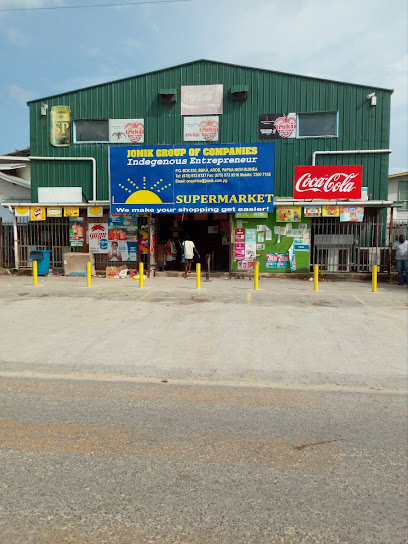
West Winds Trading
Explore Buka's best supermarket, West Winds Trading, offering a wide range of local and international products for every traveler’s need.
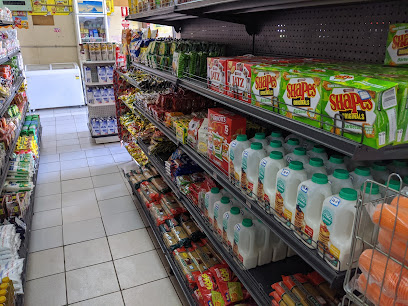
Maku Gifts
Explore the rich culture of Papua New Guinea through unique home goods and local handicrafts at Maku Gifts in Kokopo.
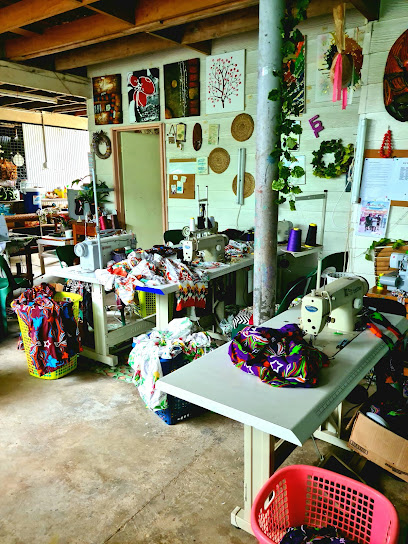
MKS BOUTIQUE
Explore MKS Boutique in Port Moresby for trendy fashion accessories that reflect your unique style and enhance your wardrobe.

Buai Market
Discover the heart of Bougainville at Buai Market, where vibrant culture and local flavors come together in a unique shopping experience.
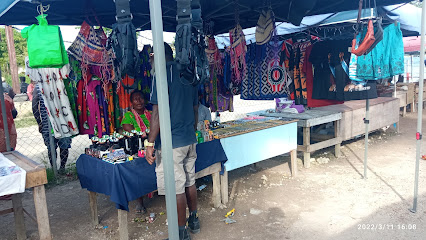
Nevsky Trading
Explore the vibrant shopping experience at Nevsky Trading in Kubu, Buka Island, with a variety of local goods and essentials.

JBN Trading
Explore authentic local products and flavors at JBN Trading in Buka, Bougainville, your gateway to the culinary heart of Papua New Guinea.
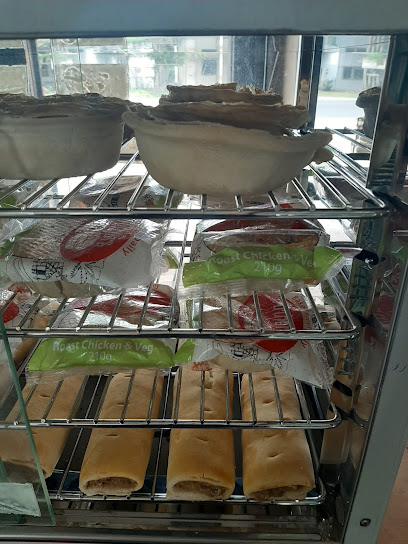
Kaskurus Market
Experience the vibrant culture and local flavors at Kaskurus Market in Bougainville, where tradition meets community spirit in a lively shopping atmosphere.
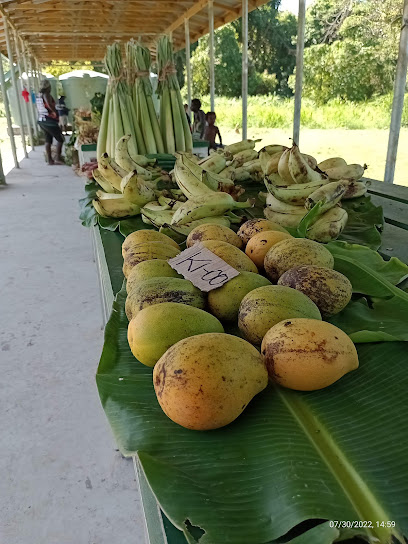
Essential bars & hidden hideouts
Holiday Inn & Suites Port Moresby PNG
Discover comfort and luxury at Holiday Inn & Suites Port Moresby, your gateway to the vibrant culture of Papua New Guinea.

Jackson's Bar Restaurant & Gaming
Discover the vibrant blend of dining, drinks, and gaming at Jackson's Bar Restaurant & Gaming in Port Moresby, a must-visit for every traveler.
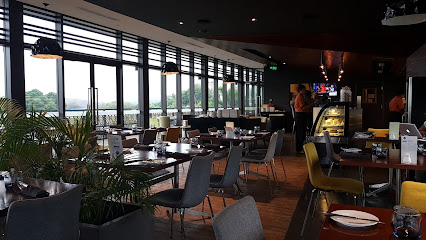
The Cosmopolitan (PNG)
Experience the vibrant nightlife and eclectic atmosphere at The Cosmopolitan in Port Moresby, a must-visit club for tourists.
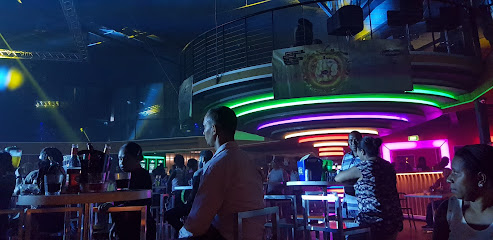
Bacchus Restaurant
Indulge in an unforgettable culinary journey at Bacchus Restaurant in Port Moresby, where local flavors meet international cuisine.
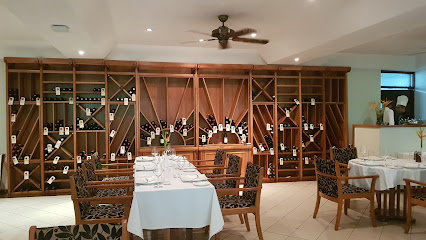
Buka Airport AYBK
Experience the charm of Buka Airport, your gateway to the lush beauty and vibrant culture of Bougainville, Papua New Guinea.
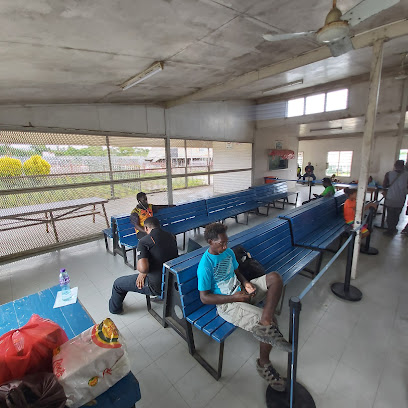
Reasons Bar & Grill Accomodations
Discover the vibrant flavors of Buka Town at Reasons Bar & Grill, where exceptional meals and warm hospitality await every visitor.
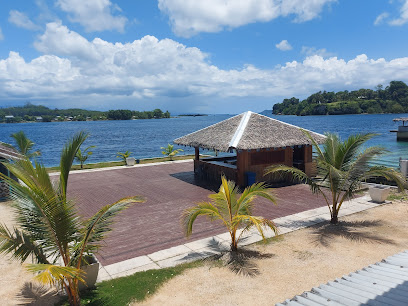
Buka Island
Discover the enchanting beauty and rich culture of Buka Island in Bougainville, a tropical paradise waiting to be explored.
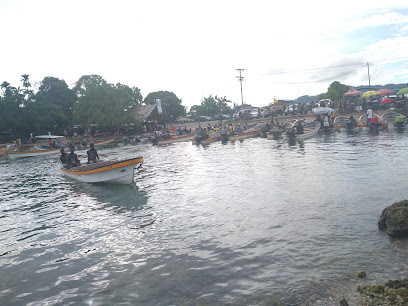
KUNDU CLUB
Explore the vibrant nightlife at Kundu Club in Port Moresby, where great drinks and a lively atmosphere await every visitor.
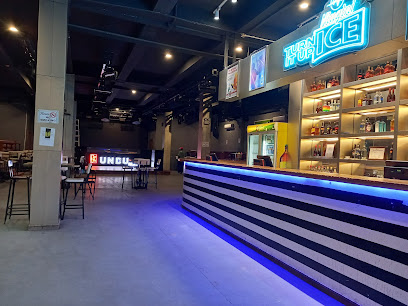
Akura Dining & Lounge Bar
Discover the vibrant atmosphere and exquisite drinks at Akura Dining & Lounge Bar in Port Moresby, a perfect retreat for tourists.
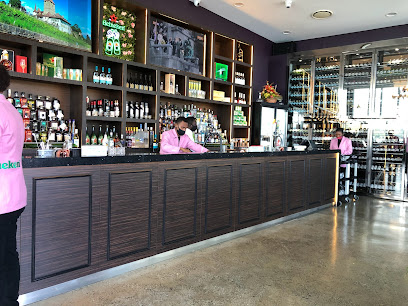
Kuri Village Resort
Experience the authentic flavors of Buka Island at Kuri Village Resort, a culinary haven showcasing local delicacies and breathtaking views.
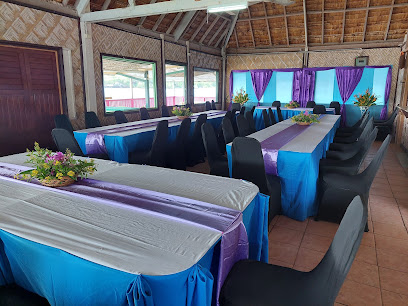
Kulkul Beachfront Club
Discover Kulkul Beachfront Club in Buka: A perfect blend of local flavors and stunning ocean views for an unforgettable dining experience.
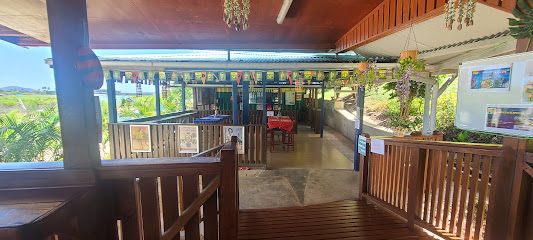
Gecko Bar, Holiday Inn
Discover Gecko Bar in Port Moresby: A cozy retreat for tasty bites and refreshing drinks in a welcoming atmosphere.
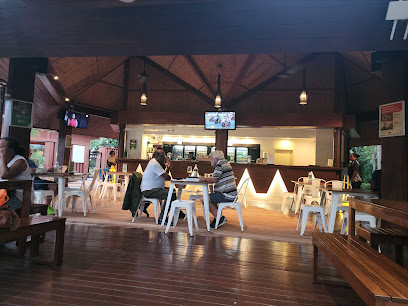
BlackOut Night Club
Discover Port Moresby's vibrant nightlife at BlackOut Night Club, where music, dance, and unforgettable moments await.
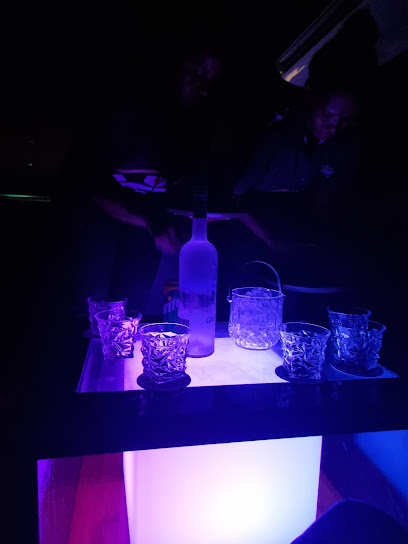
Beachside Bar
Experience the vibrant tropical atmosphere and stunning views at the Beachside Bar in Port Moresby, a perfect retreat for relaxation and enjoyment.
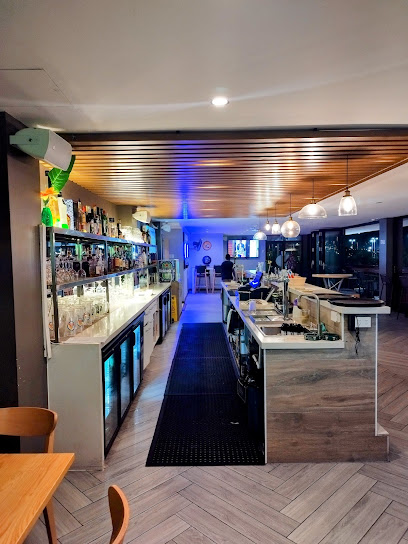
Local Phrases
-
- HelloKam na
[kam na] - GoodbyeLukim yu
[lookim yu] - YesYes
[Yes] - NoNogat
[nogat] - Please/You're welcomePlis
[plis] - Thank youTenkyu
[tenkyu] - Excuse me/SorrySori
[sori] - How are you?Yu stap gut?
[yu stap goot] - Fine. And you?Mi stap gut. Yu?
[mi stap goot. yu] - Do you speak English?Yu save toktok long English?
[yu save toktok long english] - I don't understandMi nogat save
[mi nogat save]
- HelloKam na
-
- I'd like to see the menu, pleaseMi laik lukim menu, plis
[mi laik lookim menu, plis] - I don't eat meatMi nogat kaikai mit
[mi nogat kaikai mit] - Cheers!Nogat
[nogat] - I would like to pay, pleaseMi laik bayim, plis
[mi laik bayim, plis]
- I'd like to see the menu, pleaseMi laik lukim menu, plis
-
- Help!Help!
[help] - Go away!Go we!
[go we] - Call the Police!Kolim Polis!
[kolim polis] - Call a doctor!Kolim dokta!
[kolim dokta] - I'm lostMi lusim
[mi lusim] - I'm illMi sik
[mi sik]
- Help!Help!
-
- I'd like to buy...Mi laik baim...
[mi laik baim] - I'm just lookingMi jas lukim
[mi jas lookim] - How much is it?Em i stap long moni?
[em i stap long moni] - That's too expensiveEm i longpela moni
[em i longpela moni] - Can you lower the price?Yu inap kisim daun pris?
[yu inap kisim daun pris]
- I'd like to buy...Mi laik baim...
-
- What time is it?Em i hap long taim?
[em i hap long taim] - It's one o'clockEm i wan taim
[em i wan taim] - Half past (10)Hap pasten
[hap pasten] - MorningMonin
[monin] - AfternoonApinun
[apinun] - EveningEvenin
[evenin] - YesterdayDesde
[desde] - TodayTude
[tude] - TomorrowTomoro
[tomoro] - 1Wan
[wan] - 2Tu
[tu] - 3Tri
[tri] - 4Fo
[fo] - 5Faiv
[faiv] - 6Sikis
[sikis] - 7Seven
[seven] - 8Eit
[eit] - 9Nain
[nain] - 10Ten
[ten]
- What time is it?Em i hap long taim?
-
- Where's a/the...?Em i stap we?
[em i stap we] - What's the address?Em i stap long adres?
[em i stap long adres] - Can you show me (on the map)?Yu inap soim mi (long map)?
[yu inap soim mi (long map)] - When's the next (bus)?Nogat
[nogat] - A ticket (to ....)Wan tiket (long ....)
[wan tiket (long ....)]
- Where's a/the...?Em i stap we?
History of Buka
-
Before European contact, Buka Island was inhabited by the indigenous Bougainville people, known for their rich cultural heritage and traditional practices. The island's communities were organized into clans, each with their own customs, languages, and social structures.
-
In the 1760s, the first recorded European contact with Buka Island was made by French explorer Louis Antoine de Bougainville. This encounter marked the beginning of European interest in the region, although significant settlement did not occur until much later.
-
Buka, along with the rest of the Bougainville region, became part of German New Guinea in the late 19th century. The German colonial administration introduced plantations and infrastructure, although they faced resistance from the local population.
-
During World War II, Buka Island was strategically important and was occupied by Japanese forces in 1942. The island later became a battleground as Allied forces sought to reclaim it, resulting in significant military activity and civilian impact. Buka served as an important airstrip and base during the war.
-
After World War II, Buka became part of the United Nations Trust Territory of New Guinea, administered by Australia. During this period, efforts were made to develop infrastructure and improve local governance, paving the way for eventual independence.
-
The late 20th century saw Buka heavily impacted by the Bougainville Civil War (1988-1998). The conflict between the Bougainville Revolutionary Army and Papua New Guinea's government forces led to significant strife and displacement of local populations. Buka served as a haven for displaced people and played a crucial role in peace negotiations.
-
In 2005, following the peace agreement, the Autonomous Bougainville Government was established. Buka was chosen as the interim administrative capital. This period marked significant progress in self-governance and reconstruction, with a focus on rebuilding and fostering peace.
-
In recent years, there has been a strong movement towards cultural revival and preservation on Buka Island. Efforts to document and celebrate traditional practices, languages, and art forms are ongoing, ensuring that the rich heritage of the Bougainville people continues to thrive.
Buka Essentials
-
Buka is located in the Autonomous Region of Bougainville in Papua New Guinea. The main access point is Buka Airport (BUA), which has regular flights from Port Moresby, the capital of Papua New Guinea, and other regional airports. Alternatively, you can reach Buka by sea via ferries and cargo ships from Rabaul or other ports in the region. Be sure to check the current schedules and book your transport in advance.
-
Buka is a small island, and many attractions are within walking distance. For longer distances, local taxis and private car hires are available. Public minibuses, known as PMVs (Public Motor Vehicles), are a common and affordable way to get around. Keep in mind that road conditions can be rough, so be prepared for a bumpy ride.
-
The official currency in Papua New Guinea is the Papua New Guinean Kina (PGK). While some hotels and larger businesses in Buka may accept credit cards, it is advisable to carry cash for smaller establishments and local markets. ATMs are available, but it's wise to withdraw sufficient cash before traveling to more remote areas.
-
Buka is generally safe for tourists, but it's essential to take standard precautions. Avoid walking alone at night, especially in poorly lit areas. Petty theft can occur, so keep your belongings secure and be cautious in crowded areas. Certain neighborhoods may have higher crime rates; it is advisable to inquire locally about safe areas to visit.
-
In case of emergency, dial 111 for immediate assistance. The local police station and medical facilities are available in Buka. It is recommended to have comprehensive travel insurance that covers medical emergencies. For minor health issues, there are pharmacies in town where you can purchase over-the-counter medications.
-
Fashion: Do dress modestly, especially in rural areas and when visiting local communities. Avoid wearing revealing clothing. Religion: Do respect local customs and traditions. Always ask for permission before entering religious or sacred sites. Public Transport: Do be courteous and respectful to fellow passengers. Don't eat or drink on public transport. Greetings: Do greet people with a smile and a handshake. A slight nod is also a sign of respect. Eating & Drinking: Do try local foods and accept food offerings graciously. Don't refuse hospitality, as it is considered impolite.
-
To experience Buka like a local, visit the local markets where you can buy fresh produce and traditional handicrafts. Engage with locals, who are often friendly and willing to share stories about their culture and history. Don't miss the chance to explore nearby islands and beaches, which offer stunning landscapes and opportunities for snorkeling and diving. Participate in a traditional sing-sing (dance) if you get the chance, as it offers a unique insight into the local culture.
Trending Landmark in Buka
-
The Stanley Hotel & Suites
-
New Guinea
-
Lamana Hotel (Port Moresby)
-
Port Moresby Nature Park
-
Jacksons International Airport
-
Puncak Jaya
-
West Papua
-
Royal Papua Yacht Club
-
Kokopo Beach Bungalow Resort
-
Bougainville Island
-
DHL Express Service Point
-
Papua New Guinea National Museum and Art Gallery
-
Adventure Park PNG
-
Manus Island
-
Lihir Island
Nearby Cities to Buka
-
Things To Do in Mount Hagen
-
Things To Do in Goroka
-
Things To Do in Madang
-
Things To Do in Wewak
-
Things To Do in Lae
-
Things To Do in Port Moresby
-
Things To Do in Vanimo
-
Things To Do in Kimbe
-
Things To Do in Alotau
-
Things To Do in Kavieng
-
Things To Do in Rabaul
-
Things To Do in Kokopo
-
Things To Do in Port Douglas
-
Things To Do in Cairns
-
Things To Do in Arawa









